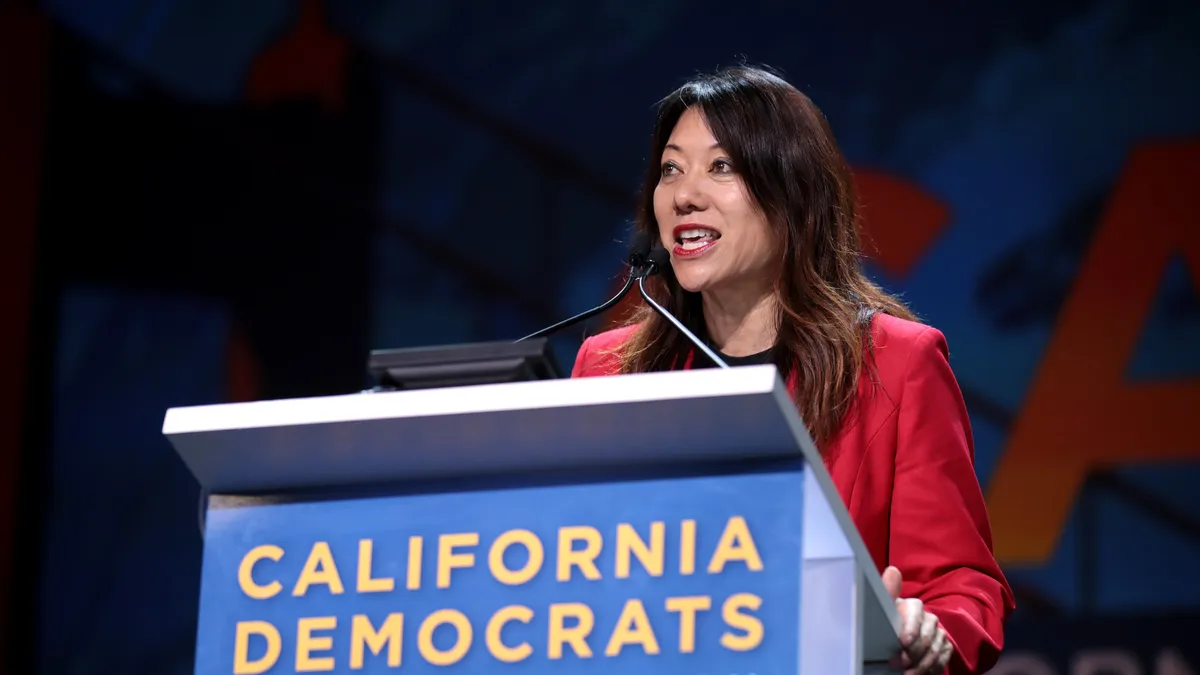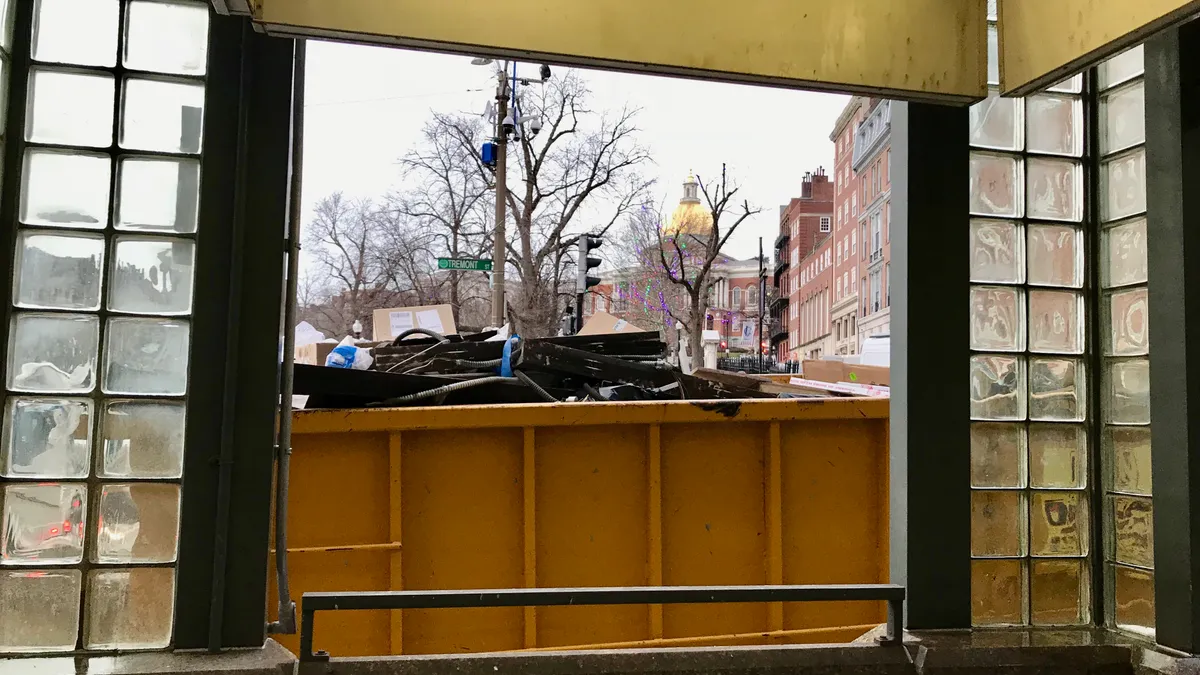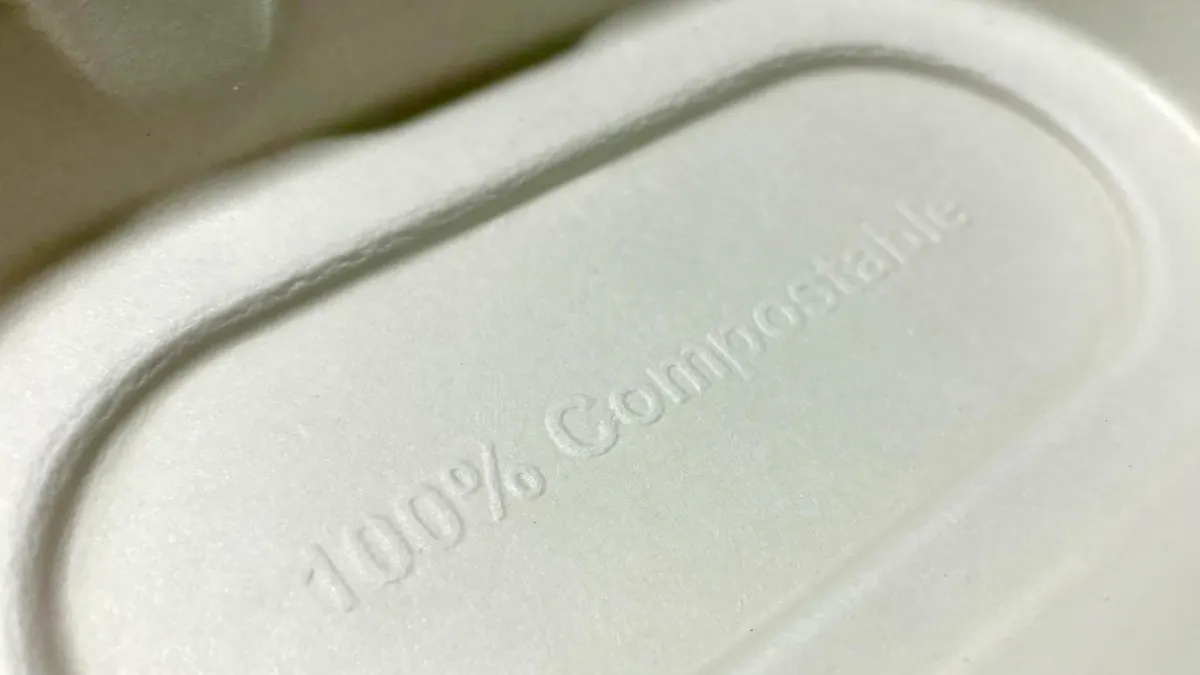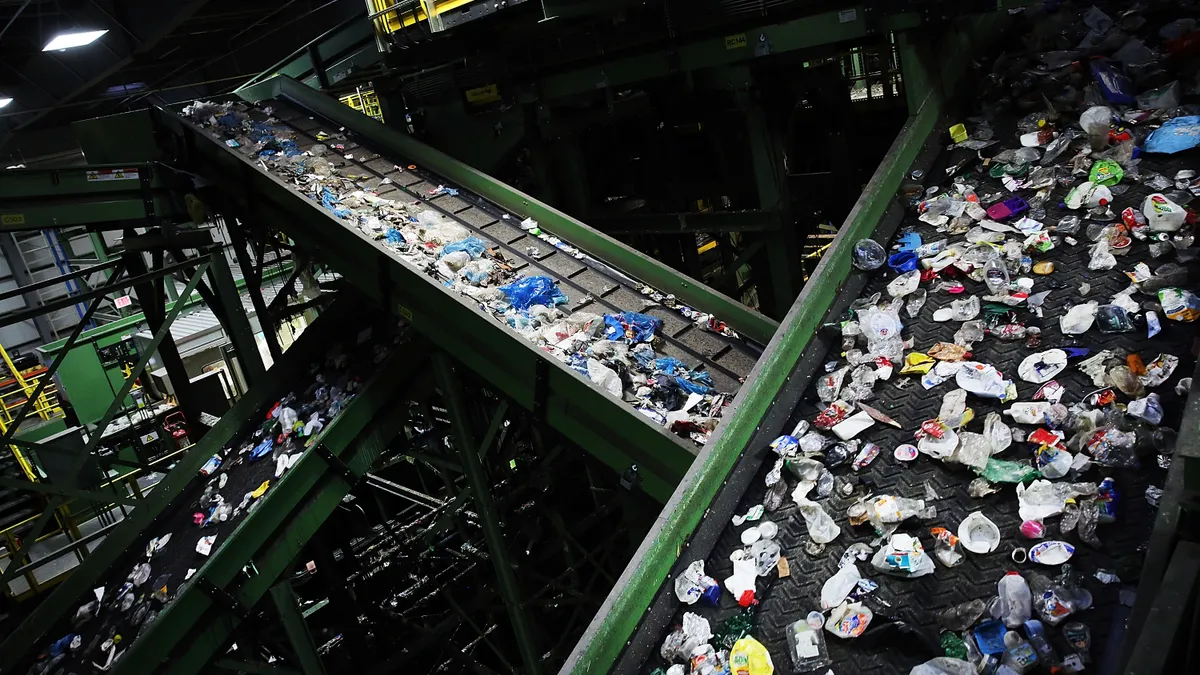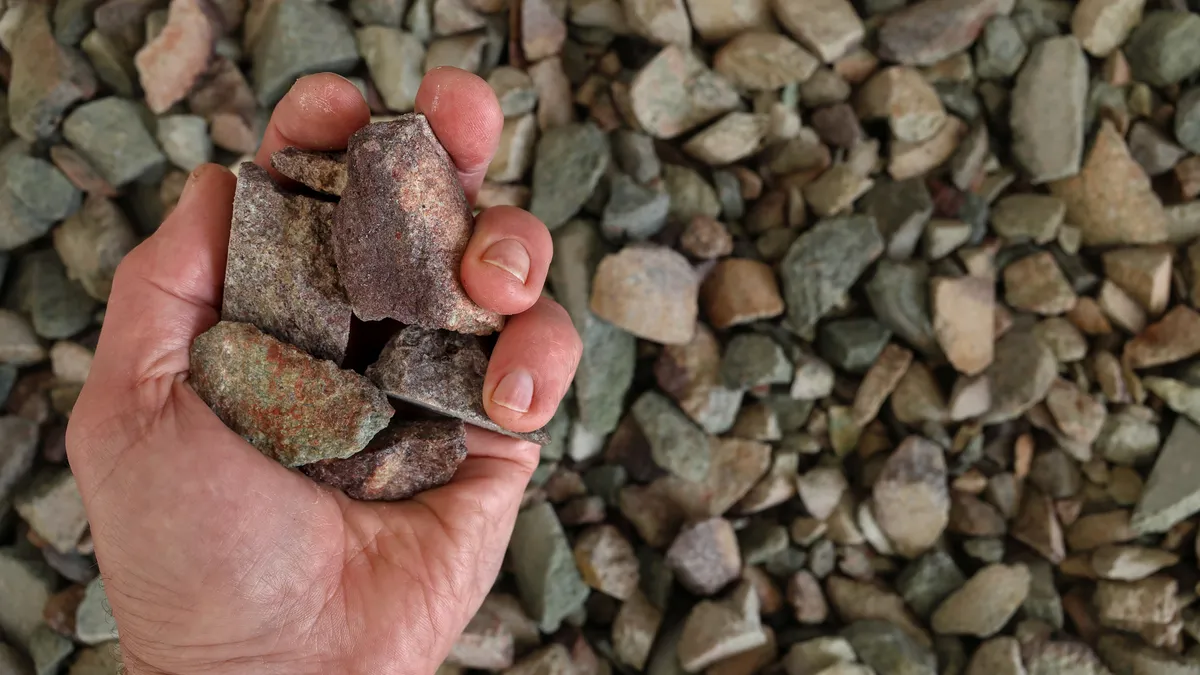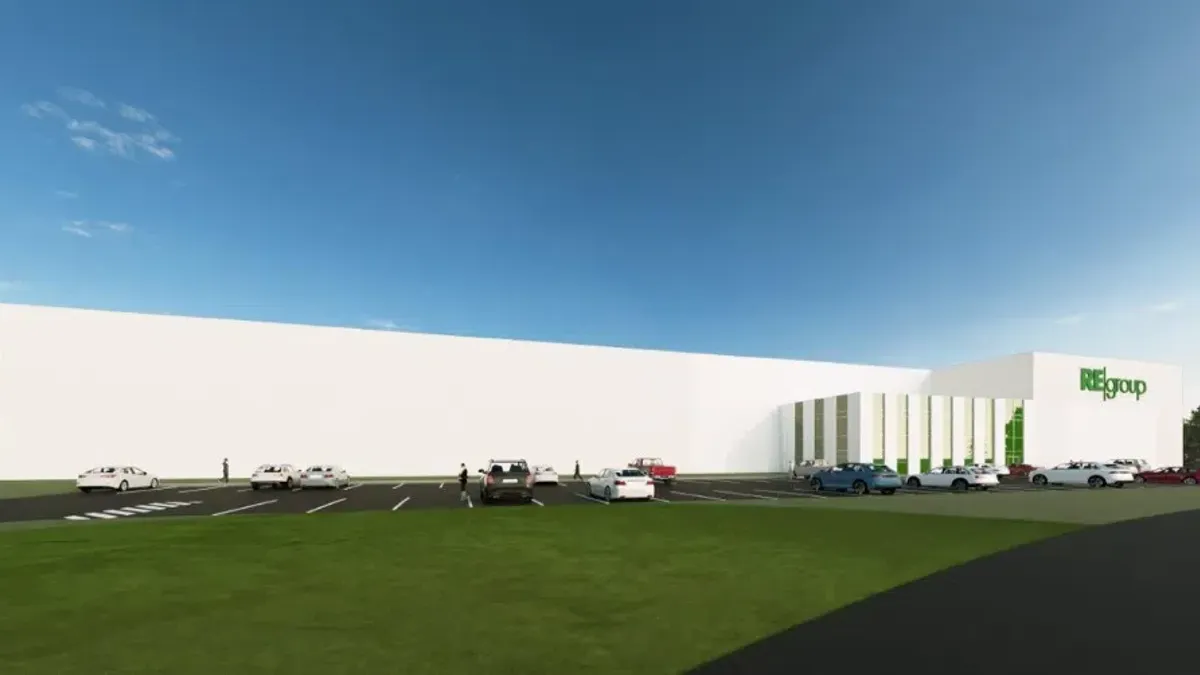California State Treasurer Fiona Ma first became involved in the waste and recycling industry as a crime-fighter.
The certified public accountant joined politics in 2002 when she was elected to the San Francisco Board of Supervisors. After joining the California State Assembly in 2006, Ma proposed legislation that targeted theft rings related to metal scrapping and the state’s container redemption value program.
“People were turning in [municipal] bike racks, I mean, just crazy stuff,” she recalled. “They would just get the cash for it instantly and then there was no way to really track who was turning it in.” The legislation passed in 2008 and instituted a 24-hour hold on payments in order to provide time to identify past offenders.
Ma, who became treasurer in 2018, is seen as having an outsized interest in the waste and recycling industry. This focus has been a hallmark of her career. Over her past two decades in the public sector, Ma has remained involved in recycling policy and often posts photos of dropping off material with her dad at collection centers in her hometown of San Francisco. But her interest goes well beyond the state’s CRV program.
She has become a familiar face at waste and recycling industry events and has also toured hundreds of waste facilities in California, as well as other parts of the U.S. and Canada. Ma proudly identifies as a “trashy lady” and advocates for women in the industry through the Women in Solid Waste & Recycling affinity group. She has been a frequent speaker at WasteExpo, the U.S. industry's largest event.
Ma is also outspoken on issues relating to plastic pollution and has urged the California Public Employees' Retirement System to divest from oil and gas companies that she considers bad actors. CalPERS recently cast its shareholder votes against the ExxonMobil board of directors because the oil giant is suing a group of activist investors. This friction is additionally relevant for recyclers as California’s attorney general continues investigating ExxonMobil’s work on plastics.
Now, Ma’s sights are set on getting elected to the second-highest office in the Golden State. She faces a range of potential candidates for lieutenant governor, though only one who has officially declared so far.
Ma faced some possible legal headwinds, including allegations of sexual harassment and discrimination by a former employee. Ma denied these allegations. The former employee has since agreed to drop the case, as reported by Politico in August, and reached a separate settlement agreement with the state for $350,000.
The California State Treasurer’s Office also received a document request from the FBI for an unspecified investigation, as reported by KCRA in April. Ma has not been implicated directly.
If Ma wins her bid to become lieutenant governor in 2026, waste and recycling pundits said that the sector could benefit through potential policy action, more government funding, job growth and industry expansion. Ma could also use her influence to hold accountable haulers or other stakeholders who fail to advance sustainability efforts.
Help save resources from landfills! ♻️ Join https://t.co/htNLuntG0p for an innovative CRV program in San Francisco. BottleBank uses advanced tech to count bags and credit CRV automatically. Get your money back easily with BottleBank. “It pays to recycle” I received $12 for these… pic.twitter.com/GLh9vkxWgZ
— Fiona Ma, CPA (@fionama) February 17, 2024
An avid learner
One of Ma’s first real political fights took place a dozen years ago. It centered on Waste Connections’ Potrero Hills Landfill in Solano County, where environmental groups advocated for limiting waste volumes from surrounding municipalities.
Ma said her goal was to ensure “that local governments could not pass individual ordinances that could supersede our waste management system,” because the system was designed to function on a regional rather than local level. She said doing so would amount to “waste discrimination.”
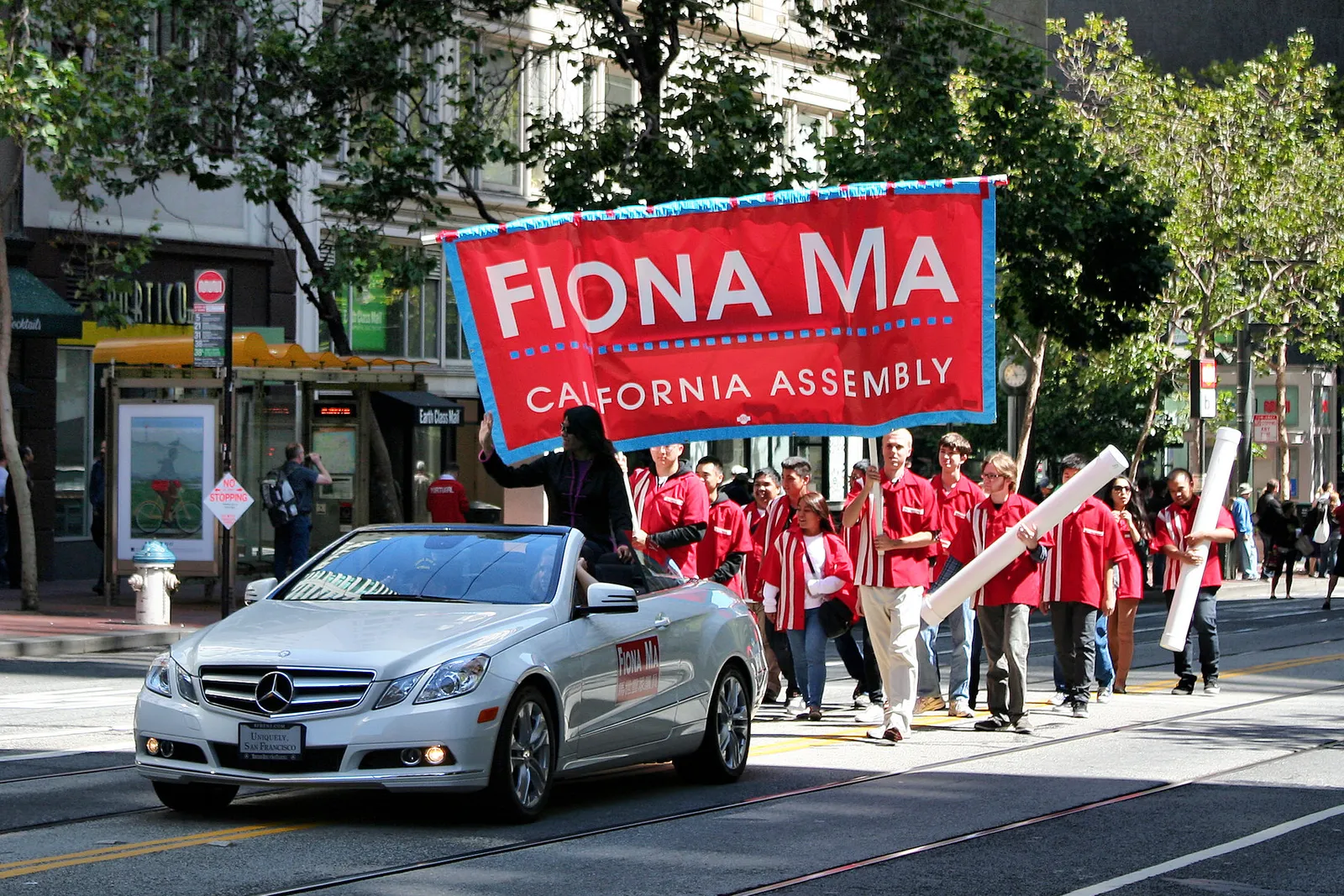
Rachel Oster — who was then the director of external affairs at Recology, became acquainted with Ma around this time.
Oster is also a co-founder of Women in Solid Waste & Recycling and now runs a consultancy. She, along with Erin Merrill, also formerly at Recology, and Tanner Kelly, Ma’s campaign manager, recently co-founded the Recycle Right Coalition
“Fiona really got obsessed with waste and recycling because in order to convey to legislators why this was so important, her staff had to really dig into where each legislator's waste generated within their district, where it was going, and she saw that waste was … a statewide concern,” said Oster.
“That's when she started taking tours, going to different conferences to educate herself on these issues ... She really is an avid learner.”
Those early tours were eye-openers for Ma. “Once you go on one tour, you're like, ‘wow, I did not know this was so complicated,’” she said, noting the complexity of managing used batteries and textiles as examples.
Support, but not always alignment
The waste and recycling industry has recognized this advocacy by donating to many of Ma’s campaigns. This includes major haulers such as Athens Services, Recology, Republic Services and Waste Connections, as well as the Resource Recovery Coalition of California PAC. Collectively, groups and individuals connected to the industry have donated at least $200,000 to Ma over the years.
That said, there’s not always alignment between Ma’s positions and those of industry groups. For example, Ma said she supported a state bill introduced this year that would have made allowances for organizations to collect waste items (organic or non-organic) in jurisdictions where they do not hold franchise licenses, so long as the franchisee does not collect those items. The bill failed to advance.
The Resource Recovery Coalition of California, Republic, Recology, WM, the California Compost Coalition, and other industry and labor groups, including the California Teamsters, opposed the bill. According to a legislative analysis, they said it would allow operators to enter markets without oversight and that it would jeopardize public health by allowing “less experienced entities” to collect and handle food waste.
Supporters of the bill included startups and groups focused on waste reduction, including Ridwell and Divert. The Recycle Right Coalition, of which Ridwell and Divert are members, sponsored the bill and said it would clarify ambiguities around how and where consumers can direct materials for reuse or recycling.
Ma said she’s very encouraged by new market entrants that are developing ways to address food insecurity and the climate effects of organic waste via edible food recovery and recycling. But, she added, those companies have to compete with others who may be less apt to prioritize such options due to their business models. “So that's what I'm really focused on right now is how and who can keep resources out of the landfills,” she said.
Waste Dive reached out to two individuals familiar with Fiona Ma at waste haulers that are part of the RRCC. One declined an interview request, stating that their role precludes commenting on elected officials. The other was unavailable due to a paid leave.
Despite any tension that exists around the evolution of collection franchises in the state, Ma still has plenty of allies.
Ma gave a keynote address at last year’s annual summit of the California Resource Recovery Association. Afterward, Heidi Sanborn, former director of the California Product Stewardship Council and current head of the National Stewardship Action Council, said this about Ma’s campaign: “We need someone like her in these higher offices. That’s how we’re going to get access and get good policies.”
Halo Glass Recycling built a cutting-edge glass processing facility in Modesto, CA, converting glass from buy-back centers and Material Recovery Facilities into color-sorted, furnace-ready cullet for the glass container industry. Located near Gallo Glass, the largest US glass… pic.twitter.com/ByKjfSM02N
— Fiona Ma, CPA (@fionama) February 23, 2024
Boots on the ground and economic influence
When China began enforcing its National Sword policy, Ma (who at that time was on the California Board of Equalization) said people in the recycling industry came to her with complaints about stockpiles of collected recyclables and concerns over having to dispose material.
She turned to her friend Jay Hansen, who runs a nonprofit called the California Foundation on the Environment and the Economy. CFEE works with legislators and regulators to advocate for issues such as energy and transportation. CFEE started doing work related to recycling and circularity. This included running tours to cities outside California to show lawmakers, waste associations and other stakeholders how recycling innovations were being rolled out elsewhere.
It was on one of these trips that Doug Kobold, executive director of the California Product Stewardship Council, first met Ma.
Having her there, along with local legislators and industry stakeholders, with “boots on the ground at these study trips,” makes a real impact, he said. “They can see and understand what actually works in the field.”
That’s especially important for someone like Ma who can influence spending toward new innovations or pilot programs with the greatest potential to address industry gaps and create job opportunities.
“For every job you eliminate at a landfill, you're adding four or five more jobs in the recycling industry,” Kobold said, adding that he hopes Ma could be a champion of growing the state’s recycling infrastructure — especially if she becomes lieutenant governor.
Kobold acknowledged the steep regulatory hurdles to building infrastructure in the Golden State, due to California’s stringent permitting and environmental review processes. But he thinks Ma could help support more investment.
“Where she could be the most influential as we try to push more and more materials to be processed here in state [is through] financial support to get these operations up and running,” he said. “It takes more money to site and develop a facility here in California than it does to just go over to Nevada or down to Arizona, or even out to Texas, which has been happening.”
As treasurer, Ma directs a tax-exempt bond financing program through the California Pollution Control Financing Authority. Ma said many applicants are often deploying technology to convert methane into energy, for example, and she emphasized accountability.
“I go and do tours, you know, after they are awarded, to make sure they're actually doing what [they describe] in their application,” she said.
“Treasurer Ma is the first constitutional officer in California that has cared so deeply about efficiently using resources and using her office to finance businesses that advance an equitable, circular economy,” said NSAC’s Sanborn in a statement.
Oster also expects Ma to continue being influential around policy, regardless of whether she becomes lieutenant governor.
“She believes that the solid waste and recycling industry is the key to achieving a circular economy,” said Oster. “[S]he's very supportive of those progressive policies like producer responsibility, like mandatory organics. I think she sees a real opportunity that with this shifting industry comes potential investment, which means more jobs, more infrastructure in the state.”
Editor’s note: This story has been updated to reflect the outcome of the sexual harassment allegations against Fiona Ma, as well at to include more context about competition in the 2026 lieutenant governor race and prior reporting by KCRA.
Correction: A previous version of the story incorrectly named the county where Potrero Hills Landfill is located. It is in Solano County.

